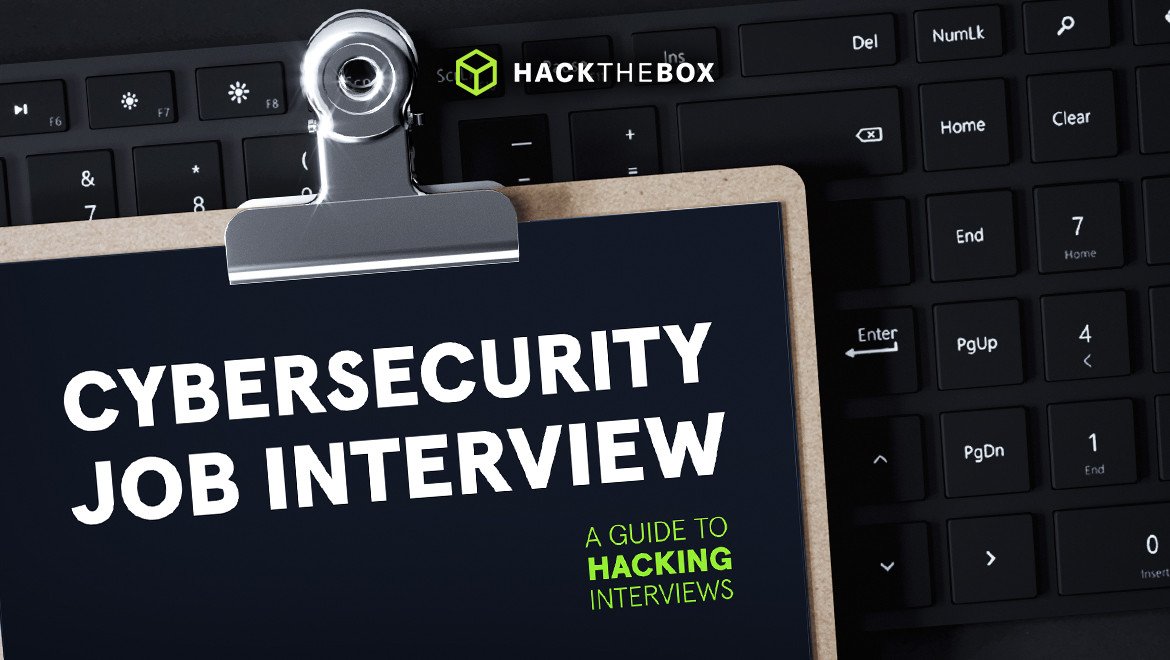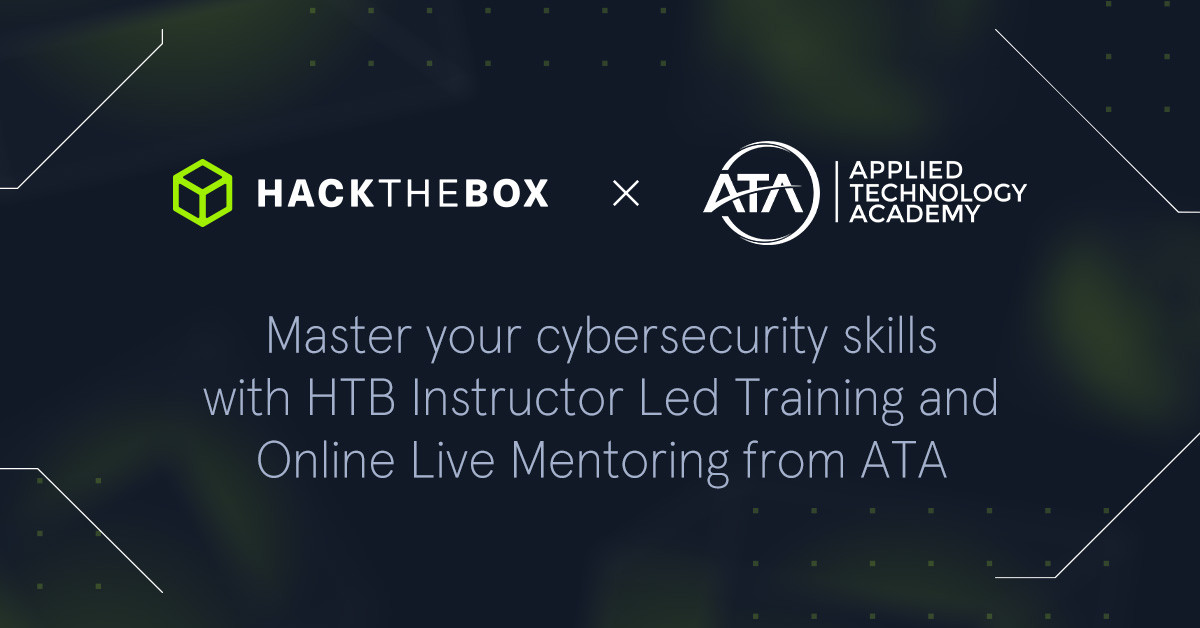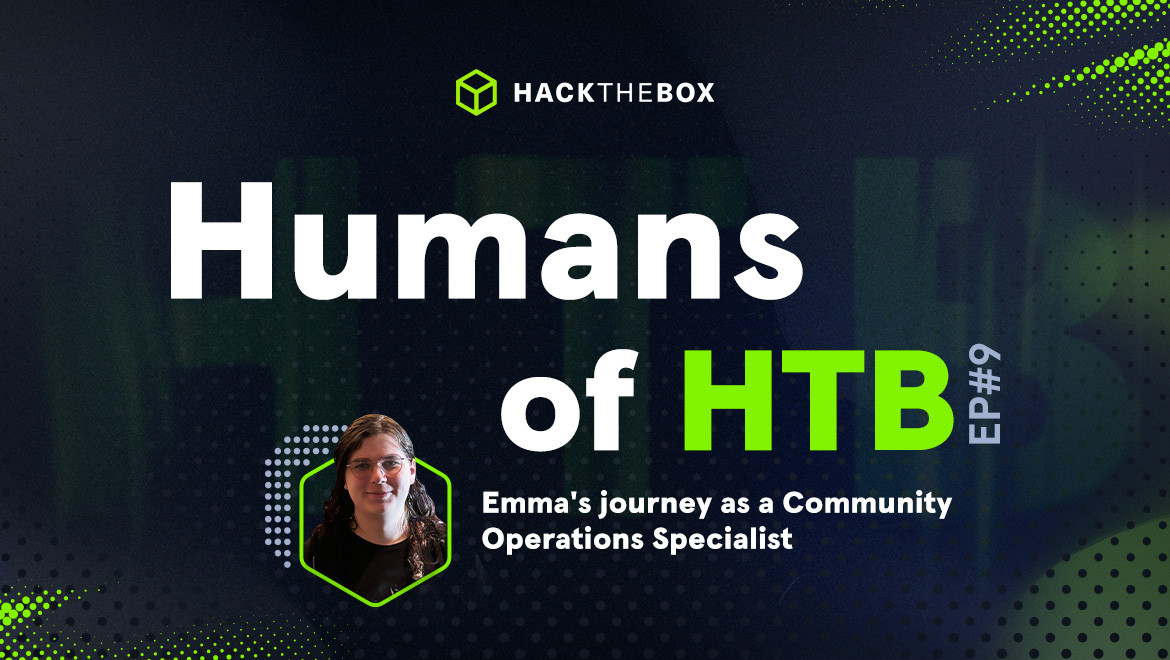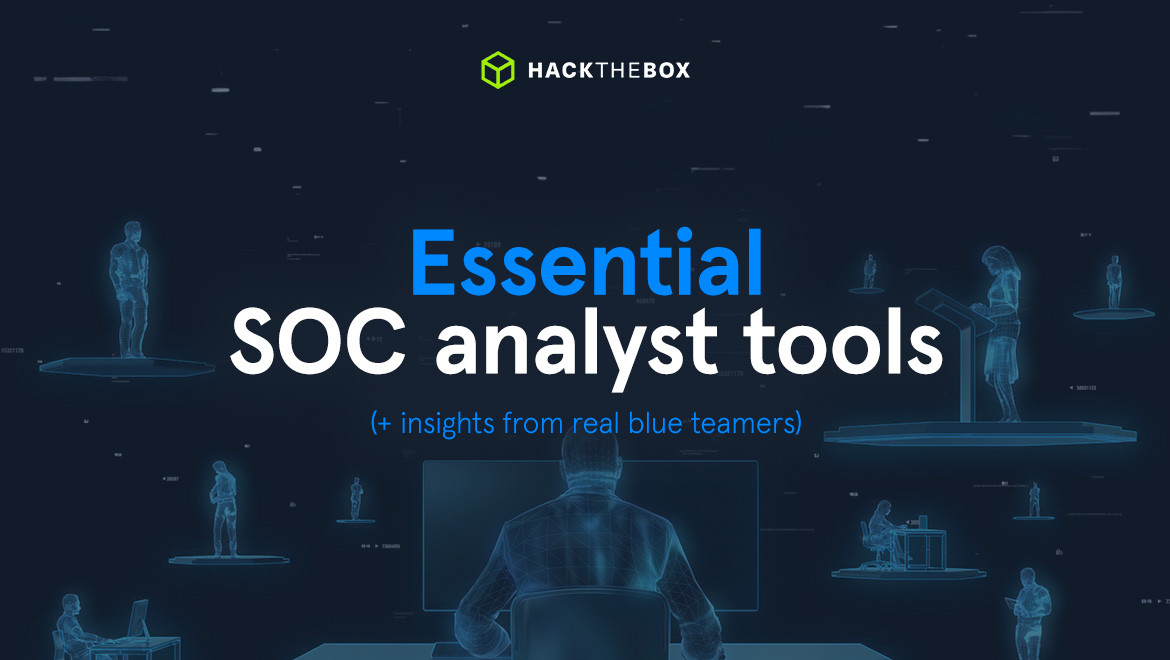Career Stories
Cybersecurity job interview prep: A guide to hacking interviews
Igor Bobryk, HTB’s Talent Acquisition Lead, shares tips on how you can “hack” cybersecurity interviews and boost your chances of success

Ig0x,
Nov 24
2022
Table of Contents
- Cybersecurity job interview preparation is (kind of) like hacking
- Preparation will propel you through each interview stage
- Stage 1: The HR Interview
- Stage 2: The hiring manager interview
- Stage 3: Hacking the Peer Interview
- Stage 4: Hacking the assignment interview
- Stage 5: Hacking the C-Level Interview
- Put these cybersecurity job interview tips to the test!
Your expertise probably lies in reverse engineering and binary exploitation. Mine? It lies in attracting, assessing, and hiring the right kind of people for Hack The Box.
In this post, I’ll be sharing my insider knowledge as Talent Acquisition Lead at HTB. You’ll get a sneak peek into how we (and many other organizations) approach interviews. It’s not a cheat sheet to get hired at HTB (or is it? Who knows…), but it will definitely improve your chances of impressing interviewers and progressing through the selection process for cybersecurity jobs.
Need help preparing for interviews?
-
Master complex concepts with free guided cybersecurity courses on the HTB Academy.
-
Prove that you have job-ready cybersecurity skills by taking the CPTS penetration testing certification (you’ll have example reports and pentests to share in interview assignments).
-
Show your investment in your skills development and earn CPE credits by solving Machines, Challenges, Endgames, and real-world cybersecurity labs
Cybersecurity job interview preparation is (kind of) like hacking
When penetration testing a network's infrastructure, you need to enumerate and research the environment before you scan for vulnerabilities and execute exploits. Similarly, understanding the recruitment process and a recruiter’s motivations is key to “hacking” cybersecurity job interviews.
You’ll typically progress through five main types of interview stages:
-
Recruiter interview
-
Hiring manager interview
-
Peer interview
-
Assignment interview
-
C-level interview
One could argue: “Aren’t they all just interviews?”
Technically, yes. But the scope and focus of the interview will change depending on the stakeholder and the stage you’re currently at. As I’ll explain later, your interview with a hiring manager will be drastically different from your interview with a C-level executive.
Recommended read: 18 SOC analyst interview questions and answers
Preparation will propel you through each interview stage
If there’s one thing I’ve noticed from being on the hiring side of hundreds of interviews, it’s that preparation is the key to success. This means:
-
Familiarizing yourself with the company that’s hiring and what exactly they’re looking for.
-
Understanding how the role you’re applying for benefits the organization’s broader objectives.
-
Being ready to talk about your accomplishments and motivations for making a career move.
Apart from enabling you to hack the job interview and succeed, preparation will also help you manage your stress and expectations. This will result in more confidence and a stronger ability to ace interview questions.
For junior professionals, especially those who are looking to become penetration testers, extensive preparation is paramount for entry-level cybersecurity jobs because you often will not be competing solely based on your experience and skills. Hiring managers will gauge your drive, dedication, and your personality. (Most of these qualities are reflected in the time you’ve invested in cybersecurity training, researching a company, and extracurricular activities.)
Now that we’ve covered the basics, let’s explore the five interview stages and how to prepare for them!
Interested in landing a job as a pentester? Brush up on these 30 critical cybersecurity interview questions!
Stage 1: The HR Interview
This is the initial stage in which you’ll engage with the recruiter or person in charge of talent acquisition. Their job is to ensure you have the minimum requirements for the job, the right mindset, and the motivation to occupy the position for which you’re interviewing.
To succeed at this stage:
-
Ensure that you know the company’s mission and how it inspires or aligns with you personally. At Hack The Box, for example, our mission is to enable people to become cyber-ready. Candidates that find this fascinating often talk about how important it is for them to enable others to advance their cyber skills and how much they appreciate Hack The Box for advancing their knowledge.
-
When talking about your responsibilities in previous jobs, focus on the ones that are close to the role you’re interviewing for.
-
Flex your industry knowledge (if you have any!). The fact that you know things about the industry exhibits strong levels of interest and initiative to research and learn. This demonstrates your commitment to moving in the same direction as the organization.
-
Study the job description and imagine yourself in the role. When you meet your interviewer, talk about the most exciting part of the responsibilities and the potential challenges you'd face. It indicates that you are seriously considering the role and that it’s not just another application you’ve sent.
For recruiters: Job description template for hiring penetration testers
Stage 2: The hiring manager interview
A hiring manager’s approach is usually more flexible, but their main goal is to understand your technical expertise and capacity to do the job. They’ll also pay attention to your ability to learn, manage difficult situations, and of course, connect with your new team.
To rock your interview with the hiring manager:
-
Maintain consistency with the discussion points and answers you provided in the first interview. Recruiters and hiring managers will often debrief after interactions with candidates, so it’s important to not have discrepancies in main topics of interest such as your experience or ambitions.
-
Be prepared to talk in an organized way about your current responsibilities and results. How were you able to achieve said accomplishments? You must be able to cohesively explain wins/losses to your interviewer.
-
Inject your industry-specific knowledge into the conversation. What are the industry's best practices? Why do you consider this industry attractive? What are the major challenges this industry is expected to face in the near future?
-
Research your hiring manager to help establish a connection. Let’s say you’re interviewing with someone from the HTB content team, providing feedback on the Cyber Apocalypse or Business CTF events would be a great way to showcase your genuine interest in HTB and spark an interesting conversation!
Stage 3: Hacking the Peer Interview
If the company you are applying for values positive candidate experiences and effective recruitment practices, you’ll have the chance to chat with your future colleagues. In this interview, bear in mind that:
-
It’s all about interaction! What your answers are isn’t as nearly as important as how you answer questions and interact with the team. Don’t be in rush to reply; take the necessary time to consider what’s being asked before responding (this may sound simple, but it can be hard to do when you’re under pressure in an interview). Being more thoughtful will prevent any embarrassing mishaps and also shows your ability to listen and your attention to detail.
-
Ask questions about the team. Who are the major stakeholders the team serves internally or externally? Which KPIs are important? What are the major challenges the team faces? All these questions will help you better understand the team you’ll be joining.
-
Learn about the company and team culture. How do they cooperate? How do they decide on major issues? What kind of qualities are important to them? All this data will add extra value to your decision-making (and again, show that you’re serious about joining the team).
Stage 4: Hacking the assignment interview
An assignment is a work sample used to gauge technical proficiency and communication skills. They are a valued way of ascertaining whether or not a candidate can walk the talk. You’ll often present or guide a hiring manager through your deliverable and explain your thought process and decision-making.
To ensure peak performance during the assessment/presentation process:
-
Review the assignment and ask questions before starting anything. If you’re not sure about something, avoid assuming and instead ask questions so you know exactly what the hiring manager is looking for. At the very least, if you do assume something that you don’t have knowledge about, be sure to note and declare that in the assignment. Asking questions is a clear sign of high motivation to perform well.
-
Focus on delivering high-quality work tailored to the job role. If the assignment is quite extensive, it’s better to focus on specific items that are critical to the job role or in high demand. If you’re not sure what these are, ask your hiring manager and review the job description. A good way to phrase this question is to ask recruiters to identify what’s important. Let’s say you’re in a role that involves both strategic and tactical responsibilities, you can ask: “What percentage of the role is strategic as opposed to tactical?”
-
Be prepared to receive feedback and ask for feedback. This will demonstrate professional maturity and a growth mindset.
-
Practice presenting the completed assignment material to a friend or family member. They may not understand the subject matter you’re explaining, but they will certainly give you pointers on how to improve your presentation and communication.
Stage 5: Hacking the C-Level Interview
Meeting a C-level employee is usually the last part of the hiring process. If you’ve made it this far, congratulations! It means the organization values your expertise and considers you a great fit. This stage is about validating that you’re a cultural fit and providing extra insights into the organization’s vision and values. You can excel at this stage by:
-
Expecting surprise questions. Executives who interview you will not have a script and they might be triggered to ask anything based on the flow of the conversation.
-
Give direct answers that demonstrate your investment in the company. Demonstrating your interest in the company (and the research you’ve done) helps you make a good impression, but C-level executives have limited time, so make sure your answers are concise.
-
Ask the big questions. What is the next big thing they are going to release? How do they differentiate against this new competitor? Such questions will help you communicate your genuine interest in the company and its future success.
Put these cybersecurity job interview tips to the test!
Searching for jobs and preparing for interviews (especially in a technical field like cybersecurity) is a lot of work. By understanding the hiring process above and adapting to each stage you can be more effective at interview preparation. This way, when you spot that dream job, you can put your best foot forward and maximize your chances of landing it.
Want to put these tips into action right away?
Apply for jobs on the HTB website
|
Author bio: Igor Bobryk (Ig0x), Talent Acquisition Lead, People Ops @Hack The Box Igor has performed hundreds of interviews and driven the doubling in size of the number of incredible individuals that work at HTB. Now, he’s working on hacking recruitment processes to continue supporting growth at HTB. Feel free to connect with him on LinkedIn. |






